Neuroscience
-
 Animals
AnimalsDolphins and whales may squeal with pleasure too
Dolphins and whales squeal after a food reward in about the same time it takes for dopamine to be released in the brain.
-
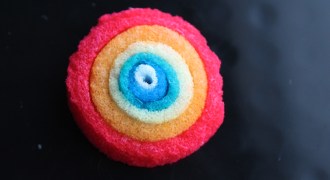 Neuroscience
NeuroscienceNeurons in silk scaffold mimic behaviors of a real brain
Proteins of silkworm cocoons can form the scaffold for a three-dimensional model of a brain.
-
 Neuroscience
NeuroscienceProsthesis uses swinging arms to tell legs when to step
Device creates artificial neural connection that could help paralyzed people walk.
-
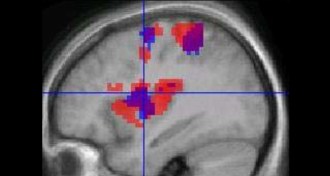 Neuroscience
NeuroscienceBusy neurons don’t always draw blood
Study of mice suggests caution in inferring the activity of the brain’s neurons from functional MRI results.
-
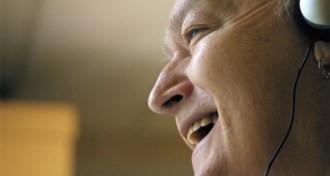 Neuroscience
NeuroscienceMusic soothes the aging brain in film ‘Alive Inside’
A social worker highlighted in a new documentary goes on a quest to bring tunes to nursing homes.
-
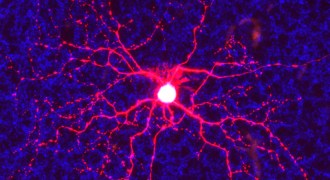 Neuroscience
NeuroscienceFor neurons, birthday matters
How brain cells make their connections during development still isn’t well understood. A new study shows that in the eye, a neuron’s birthday makes a difference in how it finds its targets.
-
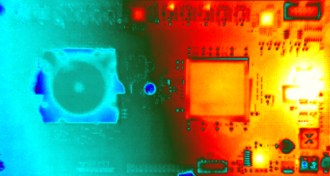 Computing
ComputingBrain-inspired computer chip mimics 1 million neurons
By processing data in parallel, computer chips modeled after the human brain could perform certain tasks, such as pattern recognition, faster and more energy-efficiently than traditional computers.
By Andrew Grant -
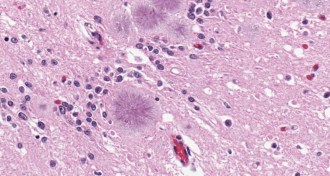 Health & Medicine
Health & MedicineNew tests screen for lethal prion disease
Urine and nasal swabs can detect small amounts of the abnormal prions that cause Creutzfeldt-Jakob disease.
By Nsikan Akpan -
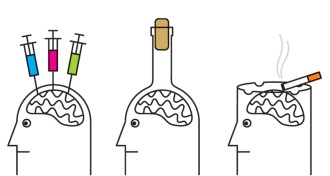 Psychology
PsychologyAddiction showcases the brain’s flexibility
People with substance abuse disorders are not just chasing a high. Their brains are adapting to the presence of drug, evidence of humans’ impressive neural plasticity.
-
 Neuroscience
NeurosciencePart of brain’s pleasure network curbed in mice with chronic pain
Part of brain’s pleasure network is muffled in mice with chronic paw injuries, a new study finds.
-
 Neuroscience
NeuroscienceStudy linking narcolepsy to autoimmunity retracted
Data linking disorder to immune cells couldn’t be replicated, scientists say.
By Nathan Seppa -
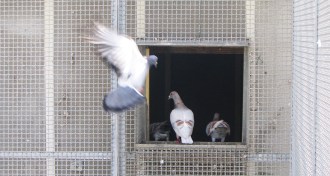 Neuroscience
NeuroscienceHippocampus may help homing pigeons explore
When researchers remove pigeons’ hippocampi, birds fly straighter on early parts of journey home.